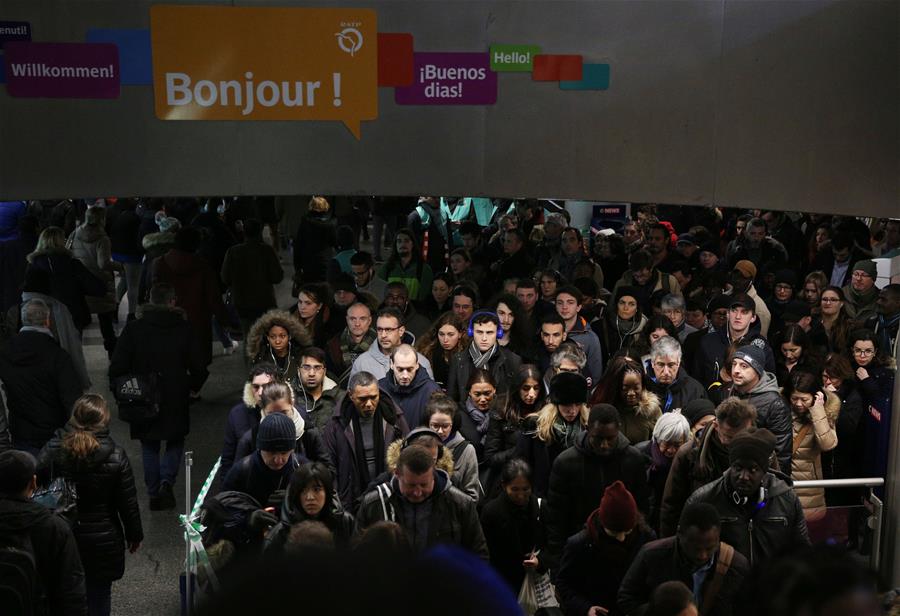 ?
?Passengers queue to enter a metro station in Paris, France, Dec. 10, 2019. French transport workers walked off the job, hitting train, metro and bus services on Tuesday for the sixth consecutive day, while civil servants, teachers and students joined the strike to bend the government over its plan to reform the country's pension system. (Xinhua/Gao Jing)
PARIS, Dec. 10 (Xinhua) -- French transport workers walked off the job, hitting train, metro and bus services on Tuesday for the sixth consecutive day, while civil servants, teachers and students joined the strike to bend the government over its plan to reform the country's pension system.
Demonstrations were called across France during the day, the second such action in less than a week, as unions are looking to fill the streets in a show of force to push their demand to drop a planned universal pension system.
"Given the level of discontent, there is a need to amplify mobilization. (The government) must listen to the employees' anger," said Philippe Martinez, head of the General Confederation of Labor (CGT), at Paris rally.
The same stance was echoed by Yves Veyrier, secretary general of the Force Ouvriere (Workers' Force) union.
"If we have no answer we will let nothing go. We have no reason to abandon a system that works. We have every reason not only to preserve it but to improve it," he said.
Last Thursday's nationwide rallies drew 1.5 million participants, according to the unions. Police estimated the turnout at 806,000 people.
The fresh day of social action, meanwhile, seemed to attract fewer protesters. In Marseille and Lyon, police estimated the turnout at 12,000 and 9,500 people, respectively. The figures stood 25,000 at 21,000 during the previous demonstration.
Rallies were also reported in Montpellier, Bordeaux, Tours, le Havre and Avignon, while the main rally kicked off in Paris in the afternoon.
The SNCF national rail service said nearly three-quarters of its drivers had gone on strike on Tuesday, heavily disrupting traffic in Paris. With only 20 percent of trains operating, commuters suffered crowded platforms and long waits on the few lines running reduced services.
Paris Metro ground to a halt with 10 of the city's 16 lines completely closed on Dec. 10.
The Ministry of Education said 32 percent of teachers took part in the strike and state energy company EDF reported 21.8 percent of its workers had joined the protests.
Challenging a taboo, the government proposed a point-based pension system with same rules applying to all, regardless of profession or sector, to replace the current system of multiple regimes.
It also planned to end a specific regime related to workers of public transport company RATP and SNCF, which allows train drivers and other staff who work underground to retire at 52, a decade earlier than the legal retirement age for a full public pension.
Critics say that the reform would effectively force people to work longer, public sector workers in particular. The government argued that the reform is needed to bring the costly pension system into balance.
Prime Minister Edouard Philippe said he was determined to see through the pension reform plan "progressively, without harshness." He would unveil the full modalities of the reform on Wednesday, which he said would not contain "magical announcements that can stop the demonstrations."